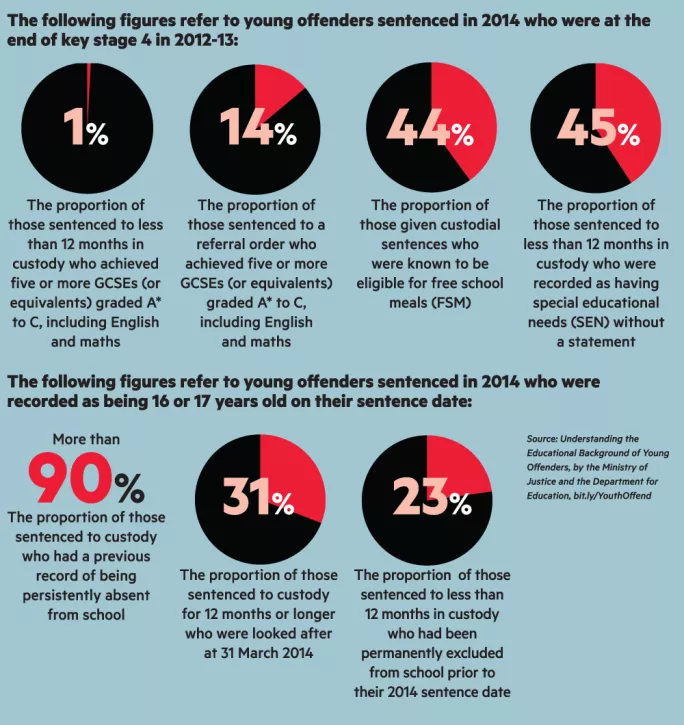How one school will do time - so its students won’t have to

A government-approved free school that will operate in the evenings, at weekends and during the holidays aims to stop young people caught up in the cycle of crime from reoffending.
The school in Haringey, North London - the first of its kind in England - will serve teenagers who are subject to court orders or who have recently been released from custody.
Young people will be ordered to attend the school by the courts. They will be picked up by car and taken to the school before 10am and returned home after 7pm every day of the year, including Christmas and New Year’s Day.
Graham Robb, acting executive director of the Campus Educational Trust (CET), which is opening the school, told TES that long school hours were needed to maximise learning and reduce the chances of reoffending.
Approximately two in every three young people leaving custody commit a new offence within a year of release. “The key risk time for young offenders to be involved in crime is that after-school slot, at weekends and holidays,” Mr Robb said. “So they would be with us at those times.”
Life chances
Details of the unique Campus school were revealed to TES as the government announced plans to improve education provision in youth custody through two new “secure schools” (see box, below).
The Campus will offer vital provision to young people coming out of the proposed custodial establishments, Mr Robb said. “The government has to think about the step down from there and how the youngsters will be supported after that. Some of them will need a school base,” he added.
Figures released by the government last month revealed that only 1 per cent of young people sentenced to less than a year in custody achieved at least five GCSEs graded A* to C (see graphic, below).
The Campus hopes to narrow the attainment gap for this group of children who are most at risk of underachieving and support them into settled education training and employment (ETE).
Mr Robb, who was previously a secondary headteacher, said: “Those in custody have the lowest levels of education attainment. The role of the school is to get them the GCSEs they need. For some youngsters, that is a better route than going straight into apprenticeships.”
‘About 75 per cent of those who will come here don’t go to school at all’
The Campus - which will have 36 pupils aged between 14 and 18 - aims to improve the offenders’ school attendance and their engagement in learning, while providing them with basic skills and qualifications.
The students will be required to attend the school for at least nine months. “We won’t be able to stabilise their learning if they are with us for a short term,” said Mr Robb.
“About 75 per cent of those who will come to Campus don’t go to school at all. They carry on living at home and going about their normal business. The current provision is not meeting their needs.”
The school also plans to build students’ skills for independent living - such as by encouraging them to learn to how to cook and how to grow their own food - and to provide a therapeutic environment for both students and teachers.

Support for staff
“You have also got to support your staff in this setting. They will be dealing with very difficult things on a daily basis. We need to make sure that people who come to us are excellent teachers and have personal skills to cope in a very demanding situation,” Mr Robb added.
It is hoped that the Campus, which has support from both the Department for Education and the Ministry of Justice, will open within two years. And the school aims to secure joint funding from both departments.
If it proves to be a success, there could be more such schools on the horizon. “Our aspiration is to get one going then open more in areas where there is high youth crime,” said Mr Robb.
You need a Tes subscription to read this article
Subscribe now to read this article and get other subscriber-only content:
- Unlimited access to all Tes magazine content
- Exclusive subscriber-only stories
- Award-winning email newsletters
Already a subscriber? Log in
You need a subscription to read this article
Subscribe now to read this article and get other subscriber-only content, including:
- Unlimited access to all Tes magazine content
- Exclusive subscriber-only stories
- Award-winning email newsletters